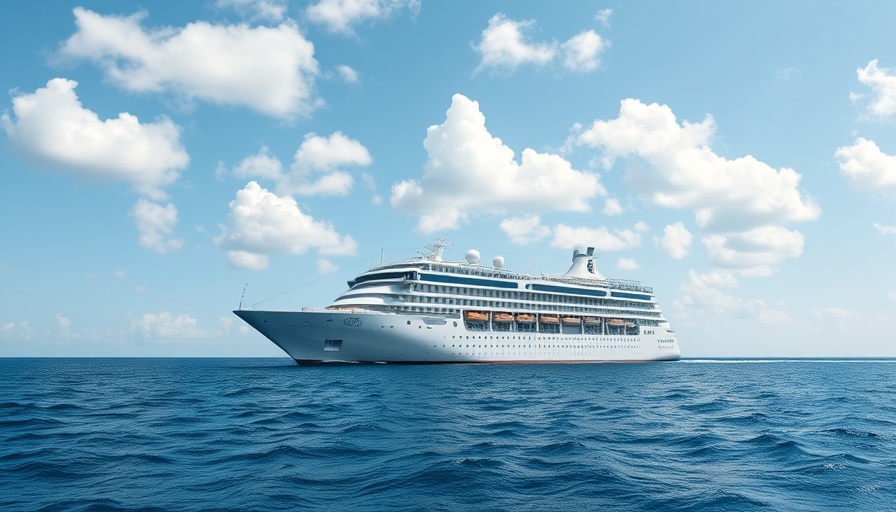
Understanding the Cruise Industry's Changing Demographics
The cruise industry, often associated with older travelers seeking leisurely voyages, is witnessing a significant demographic shift. Recent data from Cruisebound reveals that as of 2024, the largest segment of travelers booking cruises is now the 25-44 age group, making up 45% of total bookings. This marks a notable change from previous years when older adults dominated the cruise market. The appeal of cruising is expanding, driven by younger travelers seeking unique experiences, adventure, and value.
Exploring New Booking Behaviors
Increasingly, digital platforms are shaping how travelers consider cruise vacations. According to Cruisebound, over 69% of travel is now booked online—a jump from 65% in 2020. This trend is especially pronounced among those over 45, showcasing the broader acceptance of online platforms across all age groups. Young millennials and Gen Z travelers are particularly drawn to the convenience and options provided by online booking, indicating a transformative moment in the cruise industry.
Highlighting Consumer Preferences
In response to the influx of younger cruisers, cruise lines are evolving their offerings to suit this dynamic audience. Traditional long voyages are being complemented with shorter itineraries, high-energy entertainment, and amenities that cater to families. For instance, cruise lines are increasingly providing adrenaline-fueled activities, wellness programs, and culturally immersive experiences that resonate with these younger audiences seeking adventure and personal fulfillment.
Geographic Trends in Cruise Bookings
Geographically, the interest in cruising is expanding beyond traditional coastal states like Florida and California. States like New York and Georgia are showing significant growth in cruise bookings, underscoring a broader appeal for these vacations. According to Pierre-Olivier Lepage, CEO of Cruisebound, this growth can be largely attributed to effective marketing and product diversification, which are helping consumers perceive greater value amidst economic uncertainties.
What Lies Ahead for the Cruise Industry
As the cruise industry gears up for the future, experts predict further adaptations in response to changing consumer demands. Reports suggest that exploration travel, wellness-focused itineraries, and multi-generational cruise options are poised to define the next wave of cruise offerings. Multi-generational travel is notable, with many families choosing cruises as a convenient way to spend quality time together while engaging in activities suited for all ages.
Anticipating Future Opportunities
The trends of 2025 point towards a robust cruise industry that not only caters to first-time cruisers but also embraces innovation. With insights indicating that 30% of cruise guests are embarking on their first voyage, cruise lines are presented with a significant opportunity to attract this new customer base. Enhancements in onboard experiences, health and wellness amenities, and digital engagement are becoming paramount as cruise lines strive to meet the expectations of the modern traveler.
In conclusion, the cruise industry's ongoing evolution, marked by demographic shifts and changing consumer behaviors, reflects a vibrant future ripe with potential. Whether you're considering your first cruise or planning a family getaway, understanding these trends can enhance your travel experience. Exploring the digital landscape of cruise bookings and embracing new offerings can lead to unforgettable journeys on the high seas.
 Add Row
Add Row  Add
Add 




Write A Comment